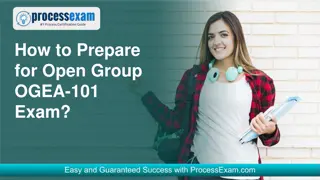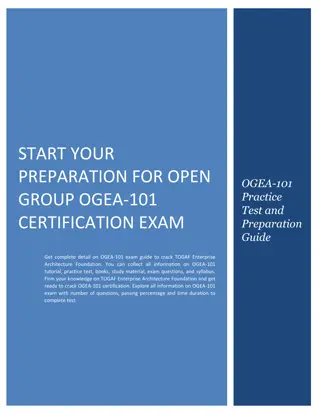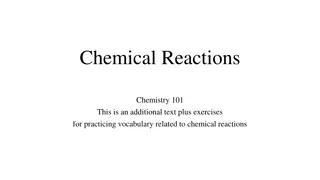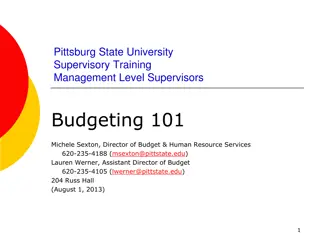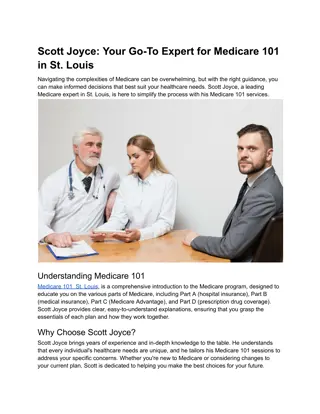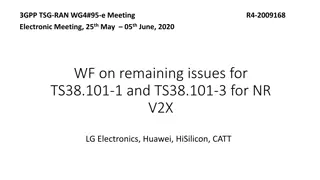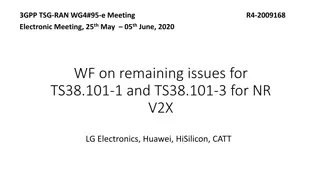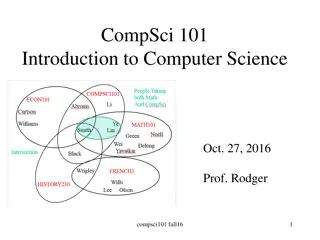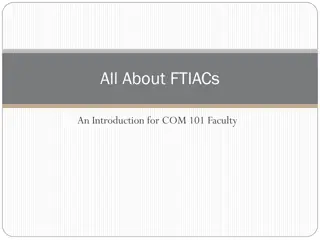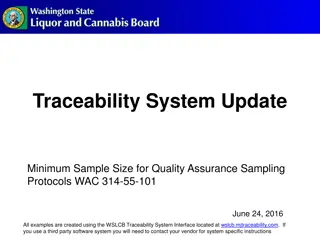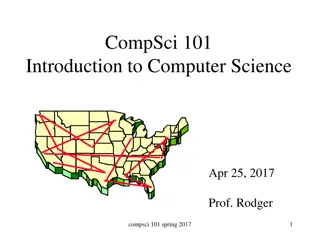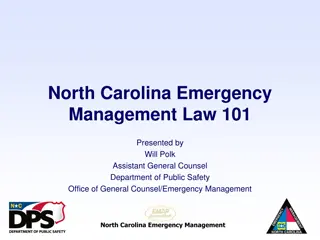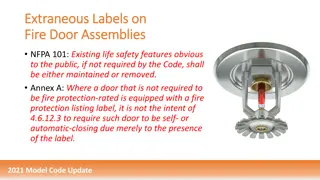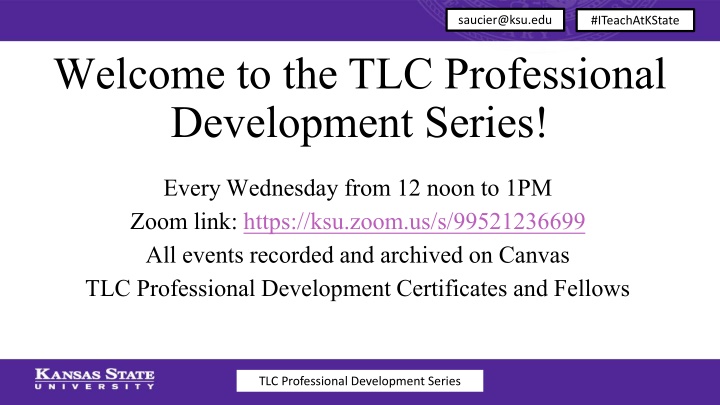
TEVALs in Teaching: Strategies and Benefits
Explore the significance of TEVALs in teaching through the TLC Professional Development Series at K-State. Learn about the purpose, utilization, and misconceptions surrounding TEVALs, along with valuable resources for educators. Join the discussion on student evaluations of teaching and how to leverage feedback effectively.
Download Presentation

Please find below an Image/Link to download the presentation.
The content on the website is provided AS IS for your information and personal use only. It may not be sold, licensed, or shared on other websites without obtaining consent from the author. If you encounter any issues during the download, it is possible that the publisher has removed the file from their server.
You are allowed to download the files provided on this website for personal or commercial use, subject to the condition that they are used lawfully. All files are the property of their respective owners.
The content on the website is provided AS IS for your information and personal use only. It may not be sold, licensed, or shared on other websites without obtaining consent from the author.
E N D
Presentation Transcript
saucier@ksu.edu #ITeachAtKState Welcome to the TLC Professional Development Series! Every Wednesday from 12 noon to 1PM Zoom link: https://ksu.zoom.us/s/99521236699 All events recorded and archived on Canvas TLC Professional Development Certificates and Fellows TLC Professional Development Series
saucier@ksu.edu #ITeachAtKState Teaching Evaluations (TEVALs) 101 Don Saucier University Distinguished Teaching Scholar Professor of Psychological Sciences Faculty Associate Director of the Teaching & Learning Center TLC Professional Development Series
saucier@ksu.edu #ITeachAtKState My Objectives Today Discuss what TEVALs are and are not Discuss why and how we should use TEVALs Discuss how we should not use TEVALs Discuss how to get the most from our TEVALs
saucier@ksu.edu #ITeachAtKState Resources Teaching and Learning Center TEVAL resources University Handbook Engage the Sage YouTube Channel Teaching Evaluations 101 Evaluating Teaching Evaluations Learning From Your Evaluations
saucier@ksu.edu #ITeachAtKState What do we think about TEVALs? One word to describe TEVALs? One negative thing about TEVALs? One positive thing about TEVALs?
saucier@ksu.edu #ITeachAtKState What TEVALs Are TEVALs = Teaching EVALuations Student Evaluations of Teaching (SETs) These are student perception data
saucier@ksu.edu #ITeachAtKState What TEVALs Are Not TEVALs are not direct measures of teaching effectiveness/excellence TEVALs are not the only metric that can or should be used to evaluate teachers TEVALs are not objective or free of bias
saucier@ksu.edu #ITeachAtKState Why We Use TEVALs Standardized form of anonymous student feedback in every course they take
saucier@ksu.edu #ITeachAtKState From the University Handbook C34.1 C34.1 Student feedback on classroom instruction. In most cases, documentation submitted by faculty members with teaching responsibilities would be considered incomplete and presumed inadequate, unless evidence of teaching effectiveness is included. Student feedback on classroom instruction is an important source of information in the evaluation of teaching effectiveness... The form should contain directions that indicate how the information is used, and the forms should be administered and collected under controlled conditions that assure students' anonymity.
saucier@ksu.edu #ITeachAtKState From the University Handbook C34.1 C34.1 Student feedback on classroom instruction. Faculty members, including professors, instructors, graduate teaching assistants, adjuncts, etc., shall collect student feedback for each course and section they teach in order to provide themselves and their departments with information pertaining to teaching effectiveness as well as provide material for the assessment of the relationships between Student Learning Objectives (SLO) achievement and teaching. Exceptions are individualized courses (e.g., research hours at the 899 and 999 levels, independent study). Faculty members engaged in individualized instruction should be guided by the unit's criteria for evaluating such instruction (see C32.2).
saucier@ksu.edu #ITeachAtKState How We Set Up TEVALs Online TEVAL forms are finalized by instructors in Canvas Account Teval + New Teval Video tutorial for setting up your online TEVAL
saucier@ksu.edu #ITeachAtKState Information To Have Ready Dates your TEVAL will be available Should be administered at or near the end of your course Dates for your reminder emails Text for the first electronic invitation message Text for the reminder messages
saucier@ksu.edu #ITeachAtKState Information To Have Ready Text for any items you will add to your TEVAL Rating scale or Free response Instructions for completion Comments for the FIF Faculty Information Form Opportunity to provide context for the semester Free response field (e.g., modality, new practices)
saucier@ksu.edu #ITeachAtKState How We Should Use TEVALs TEVALs are a formative (not summative) assessment TEVALs provide useful data to inform our teaching We should acknowledge potential biases in TEVALs Instructor demographics Course demographics
saucier@ksu.edu #ITeachAtKState How We Should Not Use TEVALs TEVALs should NOT be the only (or even the most important) metric used in evaluating instructors E.g., in promotion, tenure, or merit evaluations (PTME)
saucier@ksu.edu #ITeachAtKState Demonstrating Your Teaching Excellence Writing Excellent Statements of Your Teaching Philosophy Demonstrating Your Teaching Excellence: Part 1 Demonstrating Your Teaching Excellence: Part 2 Top 10 Ways to Get Teaching Jobs and Awards The Four Cs of Writing
saucier@ksu.edu #ITeachAtKState From the University Handbook C34.2 C34.2 Student feedback should never be the only source of information about classroom teaching. Departments or units should be encouraged to develop a comprehensive, flexible approach to teaching evaluation, where several types of evidence can be collected, presented and evaluated as a portfolio. Peer evaluation course materials such as reading lists, syllabi, and examinations; special contributions to effective teaching for diverse student populations; preparation of innovative teaching materials or instructional techniques; special teaching activities outside the university; exit interviews, and graduate interviews and surveys to obtain information about teaching effectiveness.
saucier@ksu.edu #ITeachAtKState From the University Handbook C34.5 C34.5 Faculty members are free to submit supplemental student views from instruments or other methods of their own choice.
saucier@ksu.edu #ITeachAtKState Brief Side Comment TEVALs are not the only way to get student feedback Consider using other formal and informal ways to inform your teaching Consider conducting mid-semester evaluations Five Things to Do Mid-Semester
saucier@ksu.edu #ITeachAtKState How To Get the Most from Our TEVALs Announce and explain the value of TEVALs to your students Personalize the message to your students Do this in person and/or via video announcements SGA video to students Teach your students how to complete them productively Make students your collaborators in shaping the future of your class and teaching
saucier@ksu.edu #ITeachAtKState Sample Message to Students (Psych 110) Hi everyone, This is your invitation to complete the student evaluations (TEVAL) for Psych 110 this semester. I loved learning with you this semester, and I really appreciate hearing your feedback about the course. I take these very seriously. I want to know what worked and what didn t. I want to know what I should keep doing and what I should stop or change. I want to hear about your experiences in Psych 110! Please click the link and complete the TEVAL! I hope all is well. Don
saucier@ksu.edu #ITeachAtKState How To Get the Most from Our TEVALs Give time in class for completion Let them know it is coming Do not give incentives/extra credit
saucier@ksu.edu #ITeachAtKState How To Get the Most from Our TEVALs Use supplemental items for your class Provide organization for student responses Targeted data collection
saucier@ksu.edu #ITeachAtKState Supplemental Items Provide opportunities for constructive feedback: Things your students liked Things your students didn t like that you can t change Things your students didn t like that you can change
saucier@ksu.edu #ITeachAtKState Supplemental Items Targeted data collection: Progress toward SLOs Perceptions of specific assignments and assessments Perceptions of specific teaching practices E.g., bringing PEACE, teaching inclusively Perceptions of each instructor/GTA individually
saucier@ksu.edu #ITeachAtKState Sample Supplemental Rating Scale Items (Psych 110) This course was designed in a way that helped me learn this semester. This course was designed in a way that helped me succeed this semester. I thought the lectures were informative. I thought the lectures were engaging. The exams being given online enabled me to effectively demonstrate my learning. The format of the exams (i.e., multiple-choice) enabled me to effectively demonstrate my learning. The assignments in this course enabled me to demonstrate my learning in a meaningful way. The course expectations were reasonable. The instructor(s) encouraged my participation in this course.
saucier@ksu.edu #ITeachAtKState Sample Supplemental Rating Scale Items (Psych 110) The instructor(s) were clear in their communication with the course. The instructor(s) supported me and my learning. The instructor(s) inspired critical thinking of course content. The instructor(s) were sensitive to issues of diversity throughout the course. The instructor(s) were inclusive of diverse groups. The instructor(s) were open to any questions or concerns I had about the course. Overall, I had a positive experience in this course. The teaching assistant was effective in this course.
saucier@ksu.edu #ITeachAtKState Sample Supplemental Free Response Items (Psych 110) What did you like about this course? What did you not like about this course? What would you change about this course in the future? What is the most valuable thing you learned in this course? What was your favorite memory of this course? What would you tell your friends about this class? Please describe this course in a 6-word essay (a sentence or phrase of six words or less).
saucier@ksu.edu #ITeachAtKState How To Get the Most from Our TEVALs Use your TEVALs to inform your decisions Use your TEVALs to inspire tweaks Do not chase TEVALs!
saucier@ksu.edu #ITeachAtKState In Conclusion TEVALs (and other measures of SETs): Have biases and limitations that cannot be ignored Should not be used alone in evaluating teachers Can be administered in ways that increase the response rate and utility of the data Provide students the opportunity to inform our teaching
saucier@ksu.edu #ITeachAtKState What Questions Do You Have? Further questions and/or a copy of this presentation: Email Don Saucier at saucier@ksu.edu Thank you! Please submit a Post-Event Survey!

